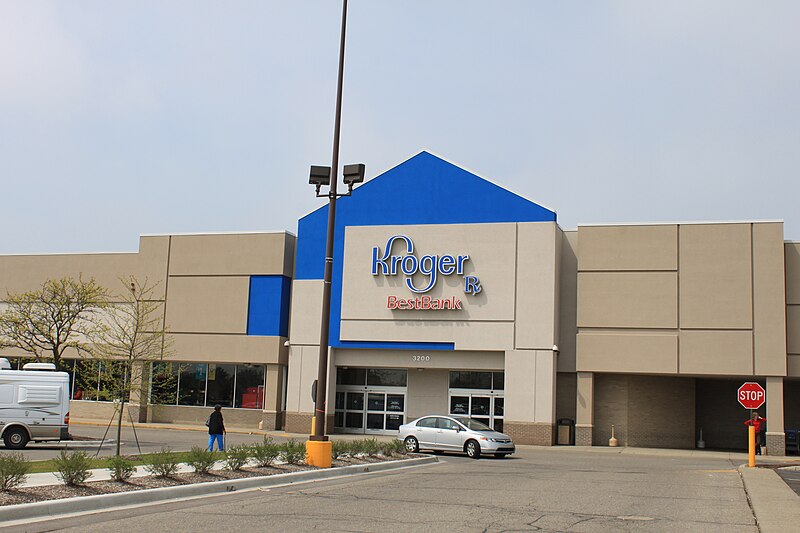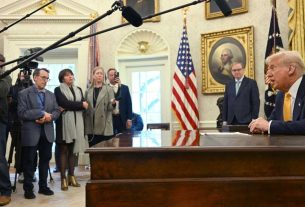A federal judge has blocked the $25 billion merger between grocery giants Kroger and Albertsons, citing concerns over antitrust violations and the potential for reduced competition in the U.S. grocery market. The proposed deal, which would have combined Kroger’s 2,750 stores—operating under various brands such as Harris Teeter, Mariano’s, and Ralphs—with Albertsons’ 2,200 locations, including Safeway, Acme, and Vons, was deemed too likely to create an unfairly dominant player in the grocery sector.
The ruling, which comes as both companies sought to consolidate their market power, signals a significant setback for the merger and a victory for regulatory scrutiny in the retail industry. The Federal Trade Commission (FTC) had raised significant concerns about how the merger would impact competition, particularly in local markets where both Kroger and Albertsons have substantial store footprints.
Legal and Market Implications
The judge’s decision to block the merger is part of a broader effort to prevent the consolidation of market power among already dominant companies. Kroger and Albertsons argued that the merger would benefit consumers by allowing the combined entity to offer lower prices and improved efficiencies. However, antitrust regulators were concerned that the merger would result in higher prices, reduced choice, and less innovation in the grocery industry, especially in regions where the companies already have a large presence.
The ruling also serves as a reminder of the rigorous scrutiny that large mergers and acquisitions face in industries with significant consumer impact, such as the grocery sector. Despite analysts predicting that the Trump administration might be more lenient on mergers, this case has shown that antitrust concerns remain a powerful barrier to such large-scale consolidations.
Albertsons’ Lawsuit Against Kroger
In response to the court’s ruling, Albertsons filed a lawsuit against Kroger in Delaware Chancery Court, accusing Kroger of failing to make “best efforts” to ensure the merger’s approval. Albertsons claimed that Kroger had not done enough to overcome regulatory hurdles, thus preventing the deal from reaching its full potential.
Kroger, however, denied any wrongdoing. In a statement to Forbes, the company refuted Albertsons’ accusations, asserting that it had acted in good faith throughout the process. Kroger pointed to Albertsons’ “repeated intentional material breaches and interference” during the merger negotiations, which it intends to prove in court.
The lawsuit could result in further legal complications, potentially delaying or complicating any future attempts at merging the two grocery chains. While Kroger and Albertsons may continue to pursue their merger ambitions in other ways, this legal battle could stretch on for some time.
The Future of U.S. Grocery Market Consolidation
The Kroger-Albertsons merger would have created a grocery behemoth, with combined revenue surpassing $200 billion. The deal was seen as part of a broader trend of consolidation in the retail sector, driven by the need to compete with growing powerhouses like Amazon and Walmart. However, the FTC’s rejection of the deal indicates that regulators will continue to exercise caution in approving mergers that could potentially harm consumers by reducing competition.
While the Trump administration may have been expected to take a more relaxed stance on such mergers, the Kroger-Albertsons case suggests that regulatory bodies remain vigilant in ensuring fair competition in essential markets like groceries.
The ruling may influence how other major grocery chains approach future merger discussions. Any potential mergers or acquisitions in the sector will likely face a more thorough examination, especially if they raise concerns about reducing competition in local markets. It also highlights the growing importance of navigating complex regulatory landscapes in the pursuit of business growth.
Conclusion
The blocking of the Kroger-Albertsons merger marks a significant moment in the ongoing debate over consolidation in the U.S. grocery market. With both companies now embroiled in legal action, the future of this deal remains uncertain. However, the ruling reinforces the importance of maintaining competition and protecting consumers, particularly in essential industries like groceries.
While the potential for future mergers in the sector is not entirely off the table, regulatory scrutiny will remain a key hurdle for any company seeking to combine forces in a market already dominated by a few major players.
References
- Forbes (2023). Albertsons Sues Kroger Over Failed Merger.
- Bloomberg (2023). Federal Judge Blocks $25 Billion Kroger-Albertsons Merger.
- Reuters (2023). FTC Blocks Kroger-Albertsons Merger Over Antitrust Concerns.
Image by Dwight Burdette: https://commons.wikimedia.org/wiki/File:Kroger_Supermarket_Pittsfield_Township_Michigan.JPG



